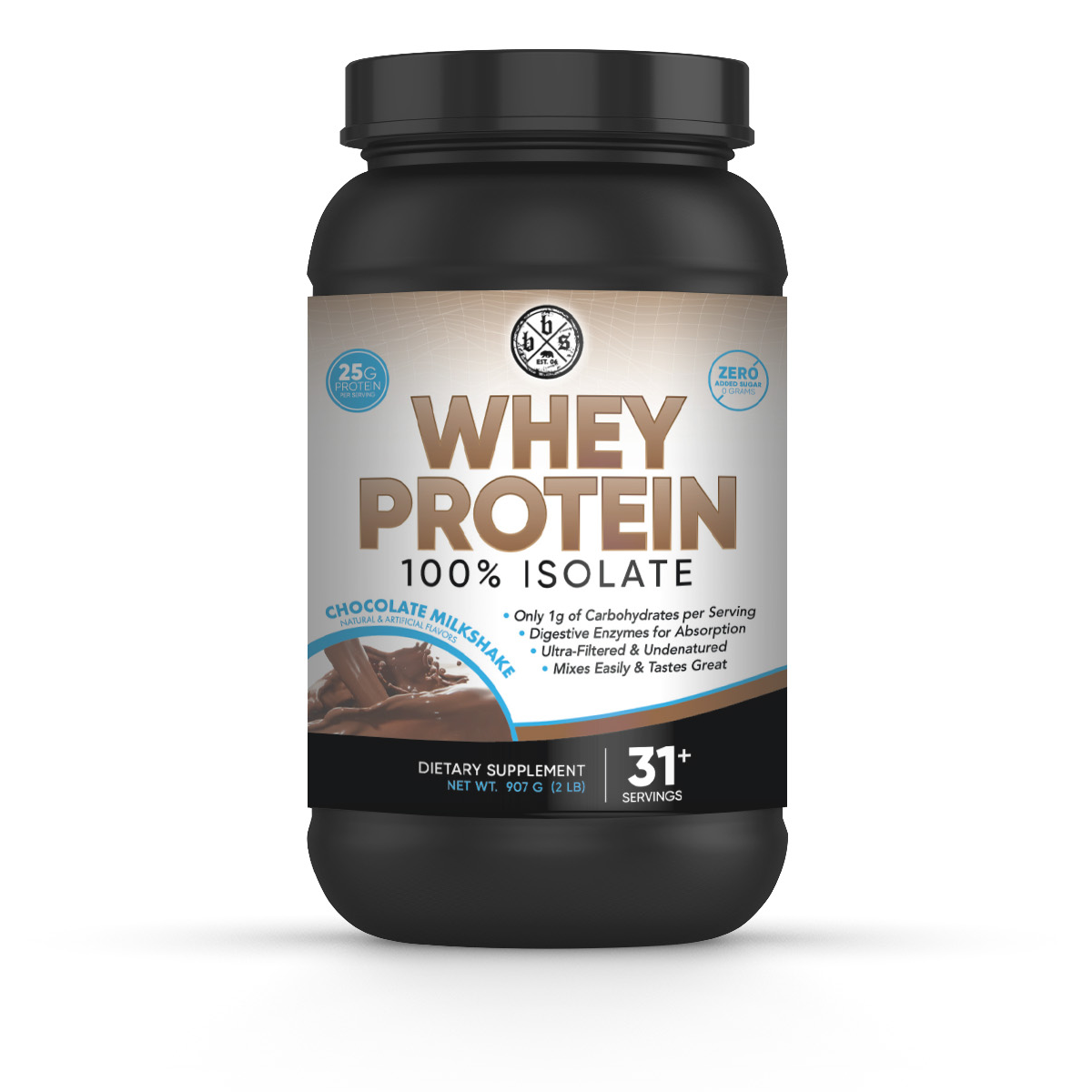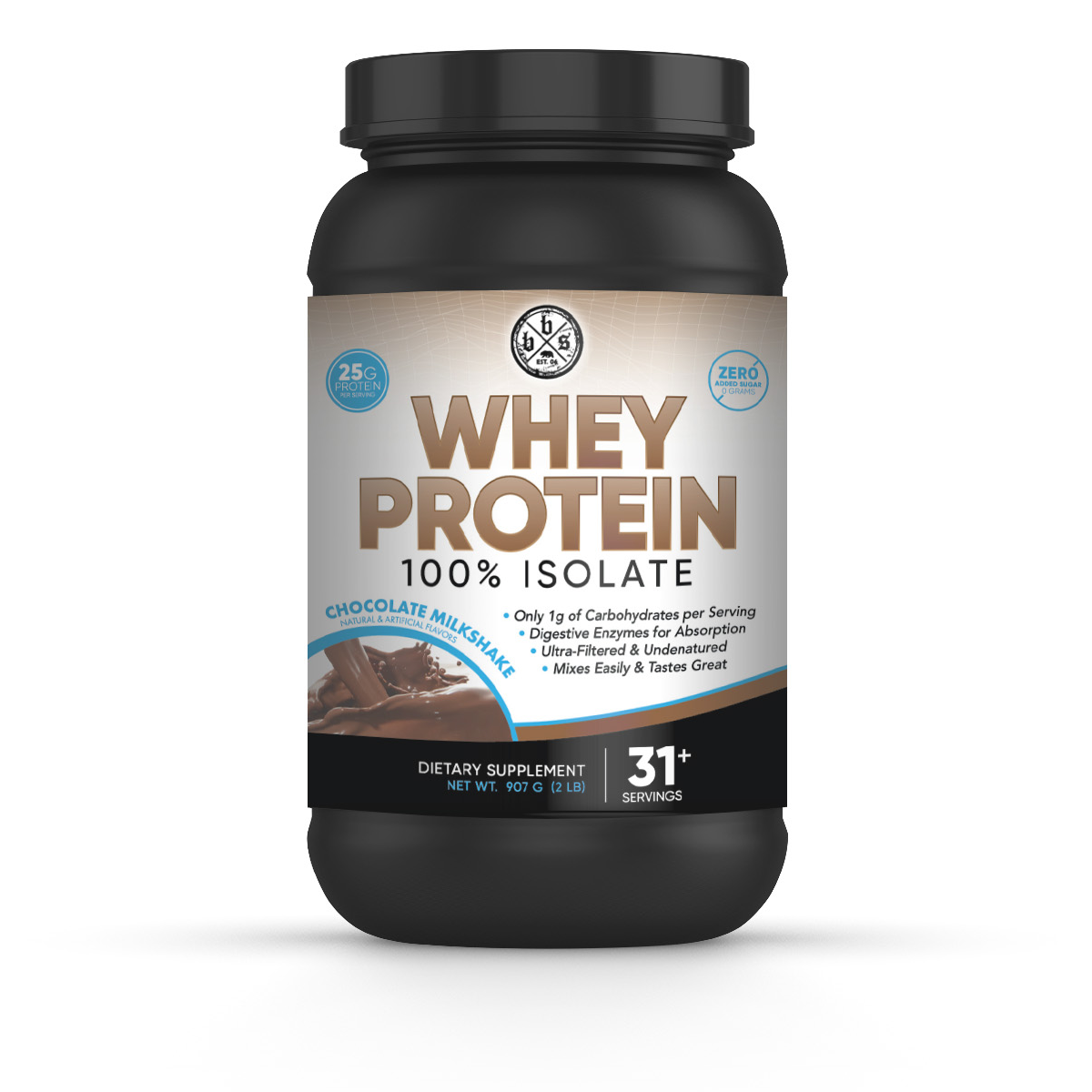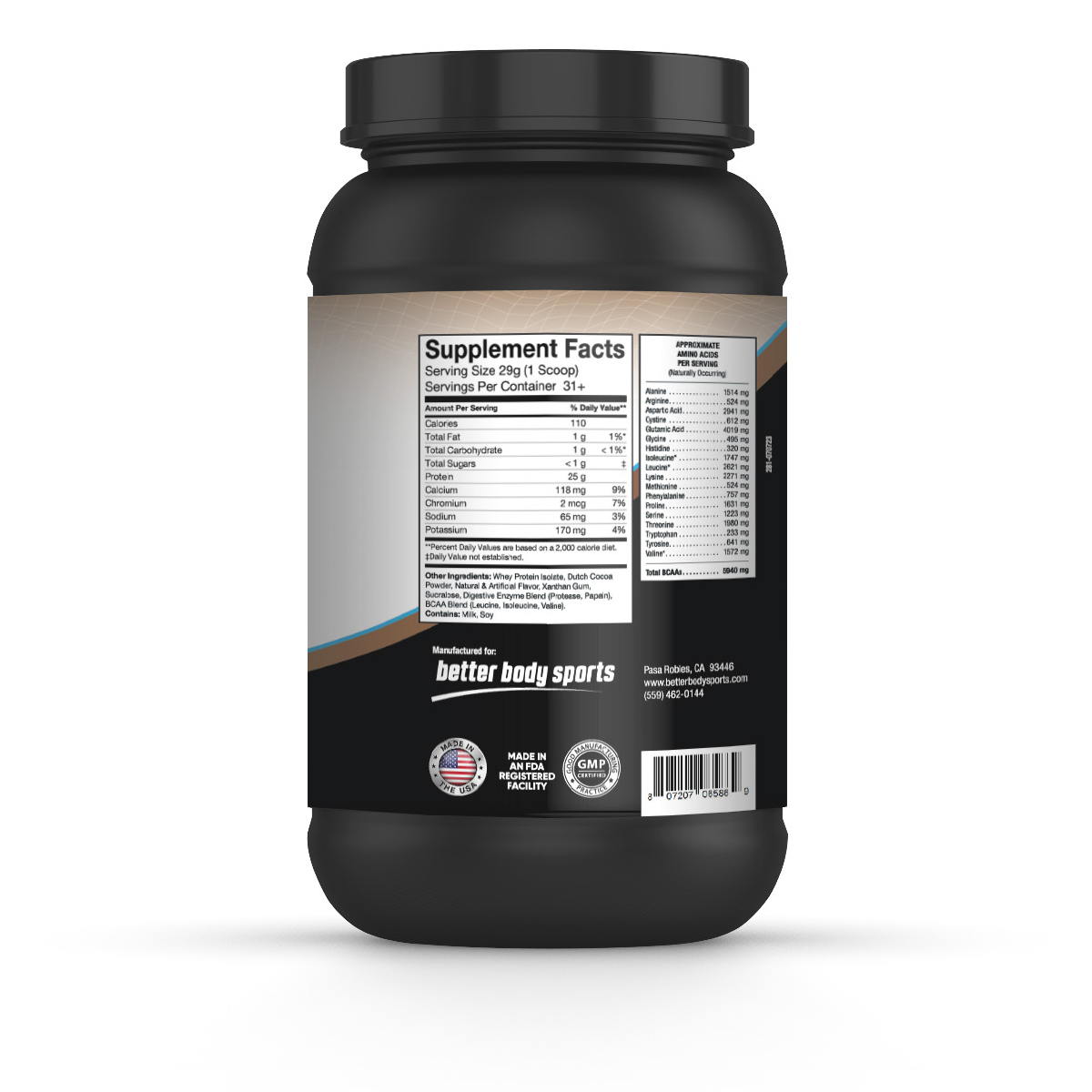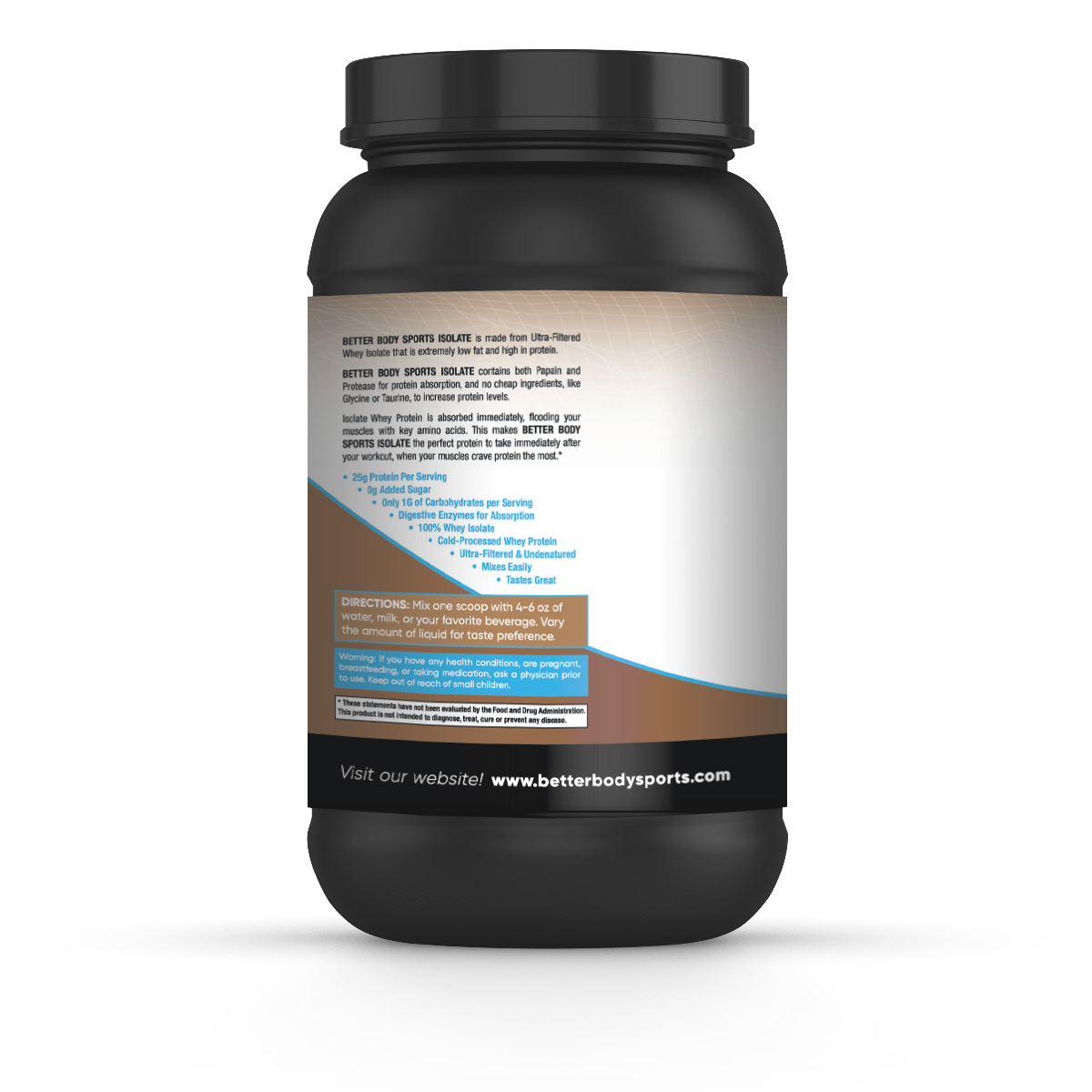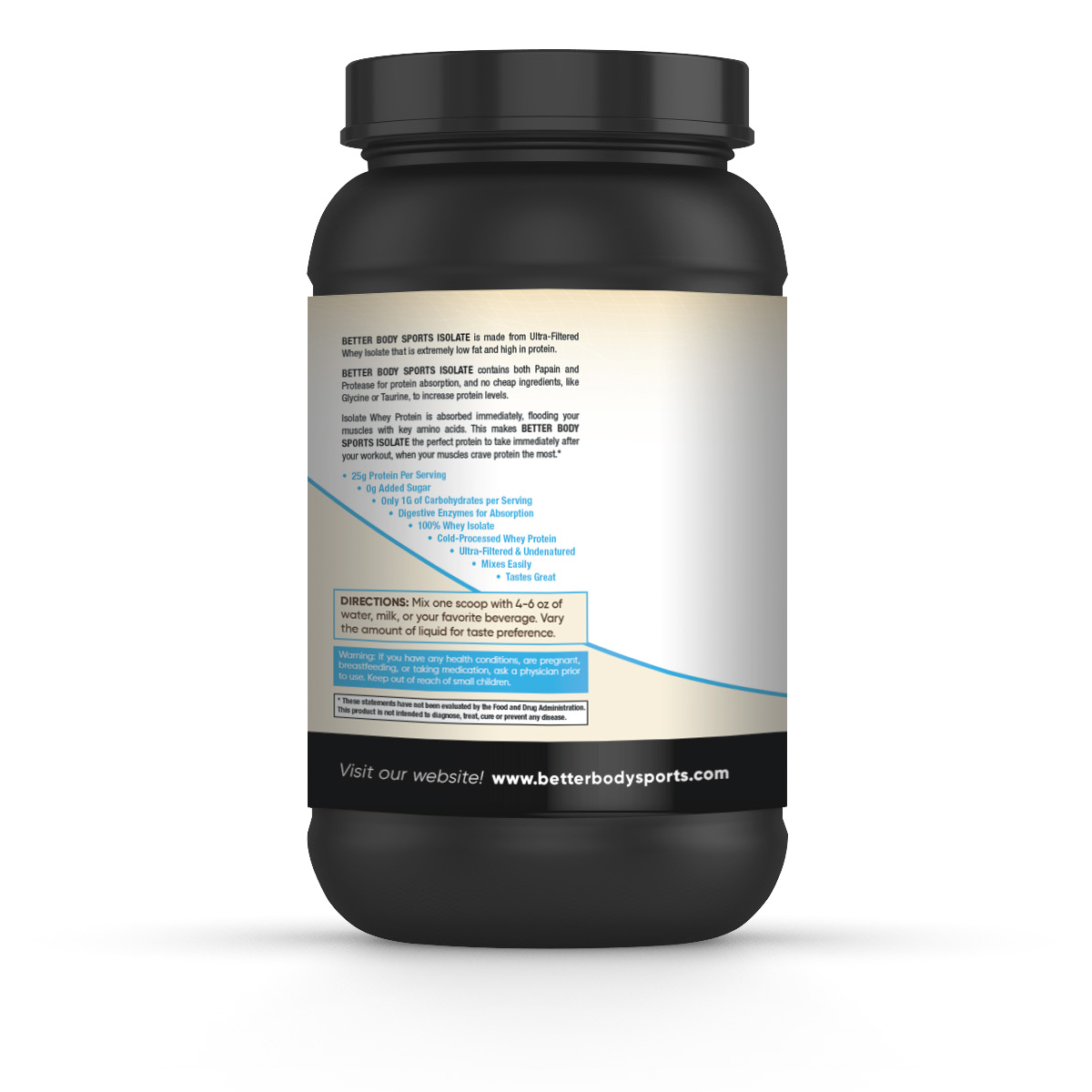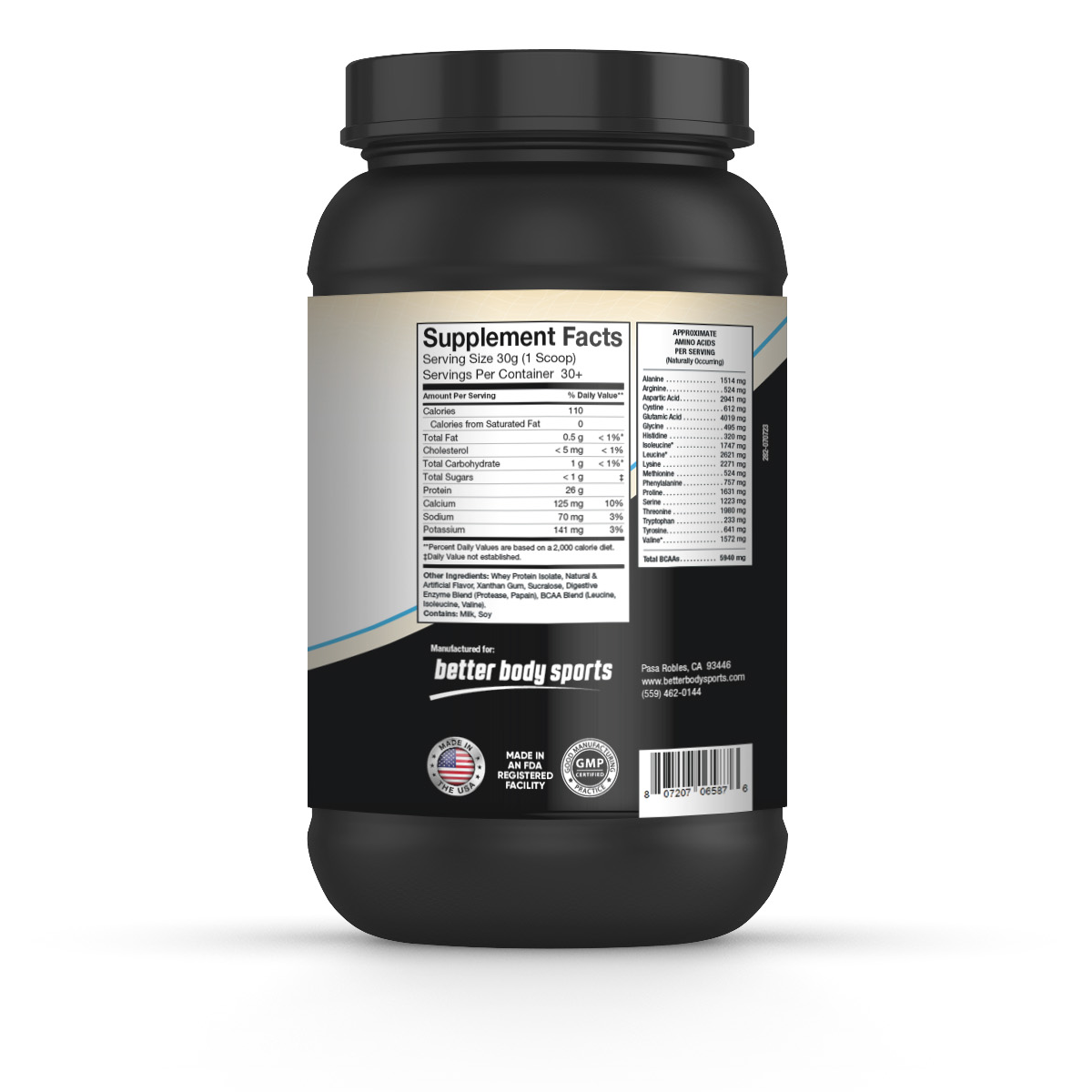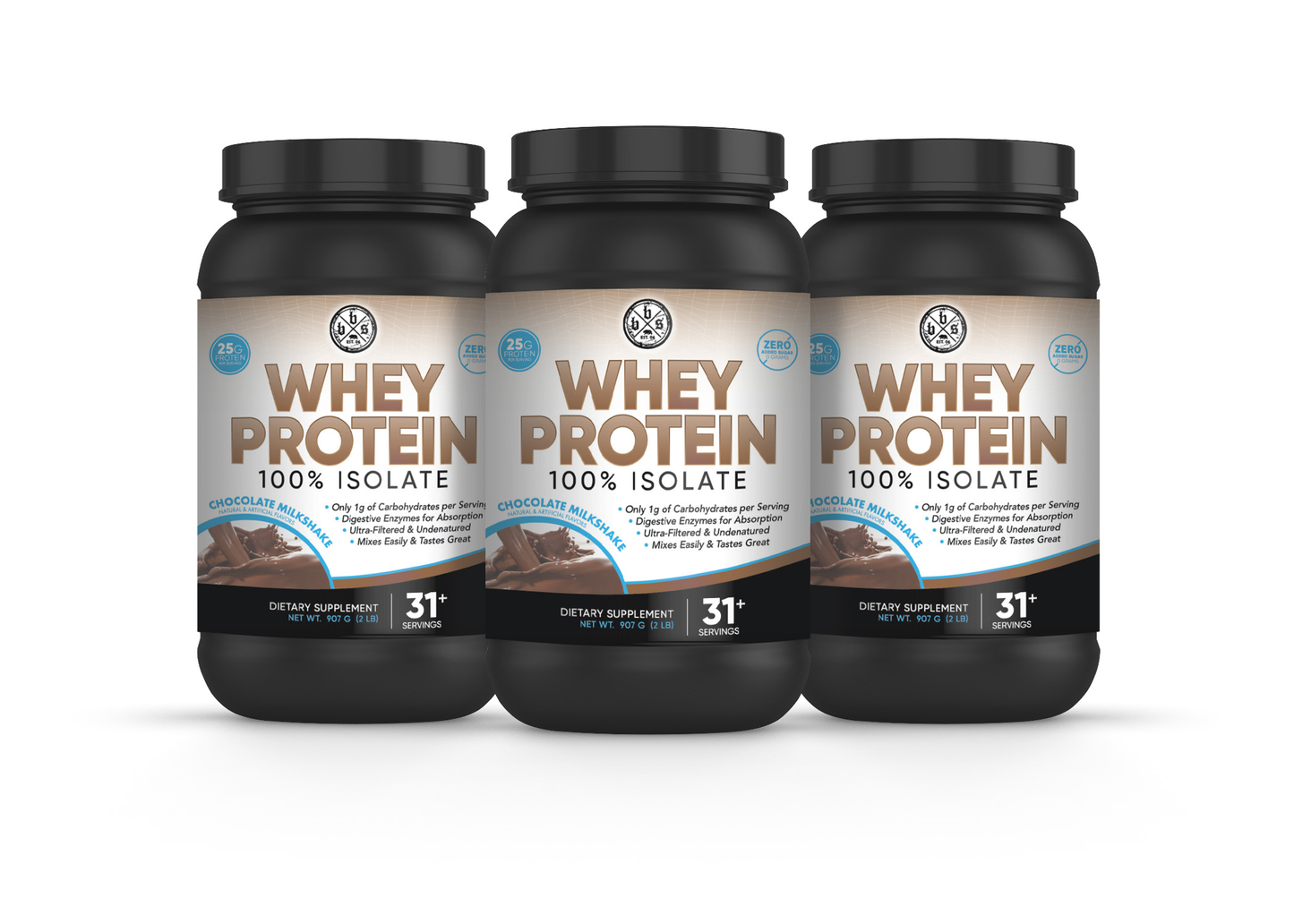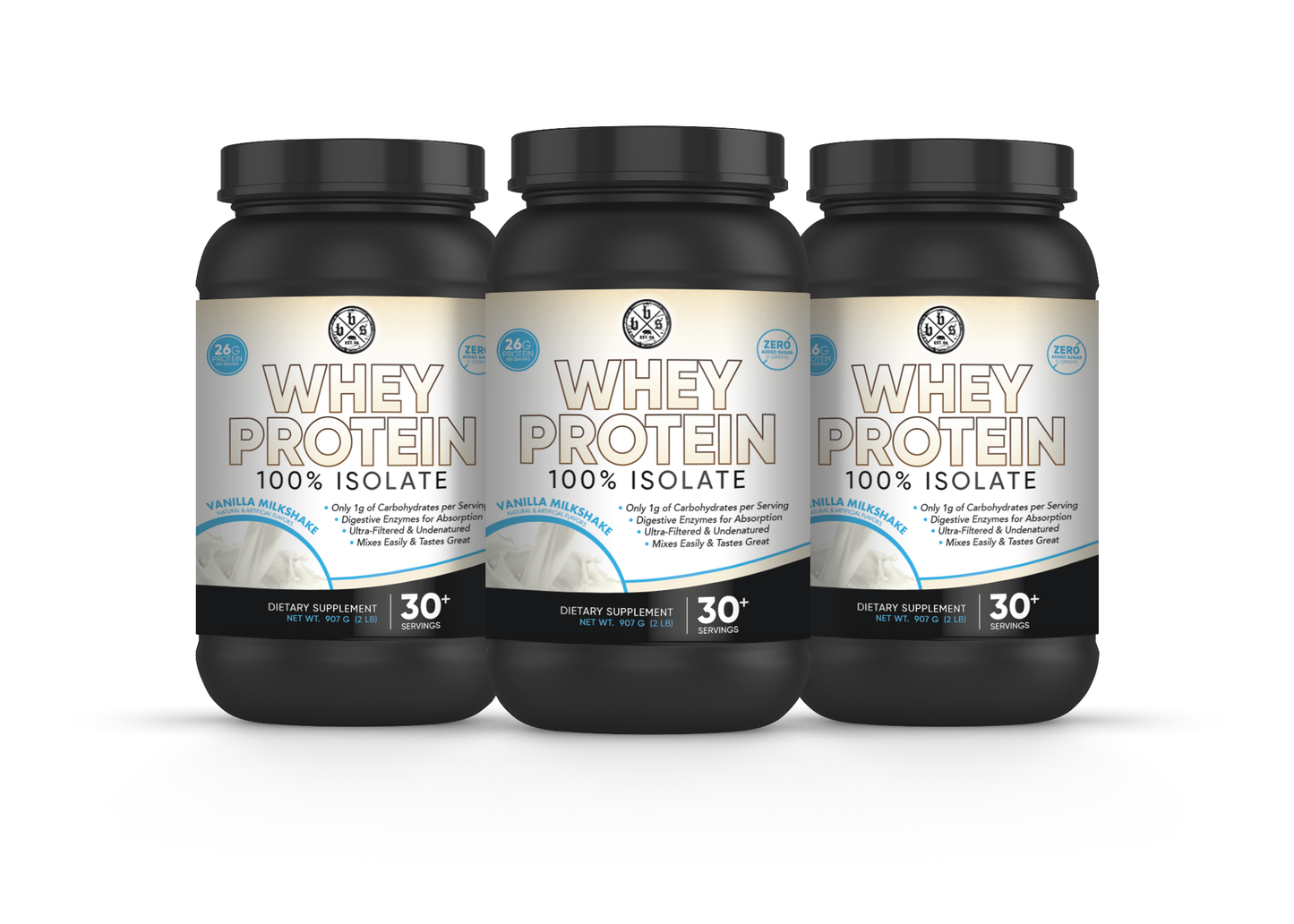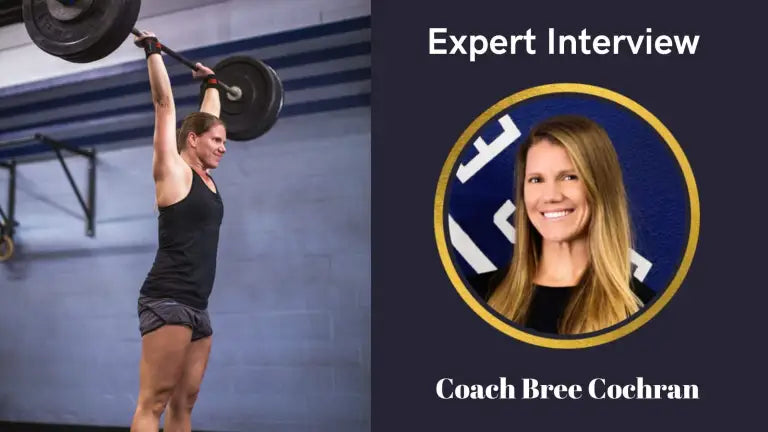
Human Performance With Coach Bree Cochran
Share
Our Expert Interview With Bree Cochran
Jason Vaught: Thanks for being here with us today.
Bree Cochran: Thank you so much for having me. I’m excited to be here.
Jason Vaught: Could you take a minute and tell the listeners a little bit about yourself before you got started as a fitness professional and just your journey to becoming a fitness professional?
Bree Cochran: Sure. It’s actually kind of a fun one. I went to college. I was a two sport athlete. So then I was in the gym all year round and then I graduated in 2008. And I don’t know if you remember what happened in 2008, but it wasn’t a great time to be looking for a job. So I, you know, went out and thought, oh, I’m going to get the big, bad world now. And I couldn’t find work. And I realized I really missed being around people that like to move and sweat and work hard. so that brought me back into the gym world. And I was like, OK, I’ll just be a trainer while things are weird and in the world. It helped me work through graduate school. I thought, well, if I go back to school, then I’ll get a better job. I realized I really loved working with people and I loved being in the gym all day and it kind of stuck. And that was 11 years ago. This this year is my 11th year as a coach.
Jason Vaught: Well, that is better than ninety nine percent of fitness professionals because most drop out after about two years. So well done to you.
Bree Cochran: Thank you. It is a very challenging profession. I will say that it’s not for the faint of heart.
Jason Vaught: Now, what sports did you play? What two sport athlete were you?
Bree Cochran: So this is also a fun story. So I was really good at track and field, mostly the field part. So I was a thrower and I got a scholarship to go to school in that. But my passion and my love was volleyball. So I got the scholarship from Southern Oregon University for Track and Field, but I walked on to their volleyball team. I spent two years as a redshirt, which if you know anything about college sports, you’re really only supposed to spend one year. So I had to work very, very hard to prove myself. It took me two years before I could even put a jersey on and be on that team. But I’m proud to say that I made it and it was one of the best experiences of my life and hard work, hard work and understanding, you know, that skill and hard work go hand in hand when it comes to that level of sports.
Jason Vaught: So what were some of the advantages that came from being such a devoted athlete once you started your fitness professional career?
Bree Cochran: Oh, that’s such a great question. I mean, the second year that I redshirted when I found out I wasn’t going to make the team, that was the year that everything changed for me because I realized I couldn’t just rely on my athleticism, that I had to put the work and the hours in. So I would spend time, you know, I’d spend longer hours at the gym. Now, in hindsight, of course, those were not very productive hours. But, yeah, it was the hard work and the willingness to put in the time. And when I became a trainer right out of the gate,
I mean, you’re at the gym all day long just waiting for the right people to walk through the door. So I would get to the gym at four thirty in the morning and I wouldn’t leave sometimes till eight, eight thirty at night. So having the work ethic from that time in college prepared me immensely for what it was going to take to get the clients and build my reputation. I really did build a reputation for hard work and that I was willing to care and put time and effort into things, I attribute a lot to that. Also my father for being a good example. But definitely that time in my life, I had to put in a lot more work.
Jason Vaught: So you mentioned one disadvantage was that you were in the gym, maybe too much doing things that you didn’t need to be doing. Were there any other disadvantages going from the athletic world, you know, maybe where you’re surrounded by a lot of very committed people to becoming a personal trainer with people that are interested, but perhaps not fully committed? Were there any disadvantages that you felt like you came into that with and things you had to work through?
Bree Cochran: Oh, yeah. I mean, I was just such a baby that I didn’t understand. I actually just did a goal setting session with the client who has been with me for ten years. It’s my longest running client. And we were talking and reminiscing about my first year with her. And she was like, yeah, you used to like, question me, like, why can’t you do this? And, you know, I used to laugh at you because you were twenty five and I was thirty seven and now of course I’m thirty five. So it’s like we were just reminiscing about that.
But I definitely went into the fitness world thinking I wanted to work with athletes. That was my number one mistake. Like I thought, oh, I only want to work with athletes because that’s my jam. What I found was that I love working with people that don’t know they have an inner athlete. That was my favorite. And then also ex athletes like people that did sports in high school, maybe even a little of college. But it’s been twenty five years since they’ve done anything.
And that was a really fun group to help re-inspire that they could move and still be athletic and competitive and those kinds of things. That was definitely a disadvantage in the beginning because I lost a lot of clients and they’re still their names. I could say to them right now, who those people are that I lost because I pushed in the wrong direction. I didn’t understand what they were going through as people in their 40s or 50s. I didn’t understand their life. You know, I’m twenty five. What do I know about life? I just didn’t know enough. But also the athletic side, it was like grind hard, go until you’re bleeding, you know, like that kind of work to like the forty five year old mom who just wants to lose weight, like a whole different mindset. And it took me a lot of years and it was a lot of trial by error. And I’m proud to say that I have a growth mindset. So it allowed me to make those mistakes and learn from them, that’s for sure.
Jason Vaught: So that brings up a really good point that I think the listeners should hear, because I don’t think it’s just the trainer that has that same mentality. I think a lot of regular individuals think back to who they were twenty to twenty five years ago. When they come into it with that gusto, you know, they’re either deathly afraid of coming to the gym or they’re going to absolutely annihilate the gym when they walk into it. So having that middle ground is healthy for so many people to just get themselves acclimated to it and not overwhelm themselves and frustrate themselves. So as fitness professionals are not alone, they’re feeling. So going into it, you were an athlete. You were very successful at that, and then you started out as an entry level trainer, working endless amounts of hours for, I’d like to say millions of dollars, but probably pitiful pay. So what do you think you made the transition from trainer to fitness professional?
Bree Cochran: Oh, that’s such a great question. I wish I could say it was before I opened my own space. Which was four and a half years ago, but because I would like to say that I was a fitness professional, what I was doing in my in the big gym that I was working in as a personal trainer. I had grown that really big and it looked successful from the outside. I was trying to learn the business and I was trying to understand the business, but I didn’t have the guidance that I needed at that time and I just didn’t get it. So it wasn’t until, like, I was dropped off my butt and I had to figure it out for myself. And I was like, OK, it’s no longer about fitness. It’s about the fitness industry, it’s about the people and it’s about professionalism. And that’s when I really made the flip. At the end of the day, like, I need to sell, like I have to sell in order to to make this go, I can’t serve my people without making money. And when that realization hit, like when I had an overhead and I had rent to pay, that’s probably when it was like, oh, I’m doing this for a living. You know, like this is real.
Jason Vaught: Yeah. Once you put your back up against the wall, that’s when you have to take it seriously. You can’t play around anymore. It’s not passive income, it’s not a hobby. It’s the real deal. And I think that’s a thing that many trainers don’t understand when they get into this is that they believe it to be something they could just hold a boot camp at the park and 10 people show up and all of a sudden they’re making one hundred dollars an hour. So it does once you establish yourself as a professional, it does change things both in potential but also in risk. Knowing you personally, I know that you understand both sides of that as a business owner.
So coming back to your clients, since most of our listeners here, some are fitness professionals, but most of them are just fitness enthusiasts. Let’s talk a little bit about the success stories and perhaps some of the failures you’ve experienced inside of the gym. And you can choose which direction you’d like to go first.
Bree Cochran: Sure, man. Well, of course, our failures are always the ones shining in our face. That’s what we think about the most. And I’ve been thinking about that a lot. Lately, just as I had to navigate covid and that world and trying to figure out which direction to go to be successful through this all. You go back to your failures and hopefully learn lessons from them. As a young trainer, my biggest failures were that I didn’t know my boundaries with my clients. This is a very personal job. You get personal with people like, you know, they make jokes about how bartenders and trainers are your therapists, like it’s one or the other. You know, I was creating closer relationships with people and then I was not able to help them as a professional. That happened a lot at younger ages. And I’m still battling that with boundaries because you just get so close.
I’ve seen weddings, I’ve seen births. I’ve seen, you know, deaths. You go through this whole life process with these people. So that’s a big deal and it’s a lot of responsibility. So I would say that is a big one as a professional on the client side of, like, failures, meaning I couldn’t I didn’t help them. This is I mean, it’s almost embarrassing to say, but I’m just going to be real with you. It’s been 11 years that I’ve been a trainer. And for the first time, I had a very smart person ask me, what do your clients want? And I kid you not I could not answer that. This was in the last three months and things have changed a lot.
Like I feel like maybe a year ago in January or just like even twenty nineteen. I might have had a solid answer for that, but I recognize that with all the changes, I never just asked my client what they wanted.
We talk like surface level goals, but I didn’t go deep into like, you know, really what do you want. Why are you here? What can I help? How can I help you get what you need? And maybe it’s stress relief from the life of covid and home schooling. Or maybe they really do care about their deadlift. You know, I’ve been focused on that a lot the last month. And I have a list again, that list of names in my head of all the people I failed who came to me and loved me as a coach.
So they stayed with me for a long time. But when I look at their progress over the length of time I had them, I recognize I didn’t get them to lose twenty pounds and that’s what they came to me for. So what I was missing and is a huge chunk and it’s the direction I’m going now is I was missing the nutrition piece. I would talk about it and I have tips and tricks and we do the body fat test and all that. But I didn’t do enough to reach their goals. And that was like I felt like such a ding dong for not understanding that and not even looking at that over the course of covid, in just literally asking the simple question of what do you want, how can I help you get it?
You know, my favorite moment is we require personal training to get into our group classes and group classes are like a fun area. That’s what everyone wants to go to. But we require personal training to get in there because we need to have those one on one times to make sure everyone gets what we do. But my favorite moments are there, and the light bulb moment is always when I talk about movement as movement. Like, hey, we’re talking about functional movement, right? Functional exercises become like a buzzword, but what does that really mean? And I love the moments when I’m with my clients where I talk about how their feet are and like we take their shoes off and we look at their feet and I’m like, hey, that is the foundation for all movement that you do in a normal day. For the most part, I would say a big chunk of it. Right.
So we discuss like and they don’t even know their feet hurt until they start trying to move them in a certain way or pull their arches up or whatever it is we’re doing. Those moments are my favorite. When I talk about the push up we talk about how that relates to, like if you were going to push a fridge, how would you push that bridge, would you push with your arms way out to the sides, or would you keep your arms close inside? Because that’s a more functional strength base for pushing that heavy object across the floor.
So I love connecting the dots so that they can understand that they’re not just here for aesthetics or whatever that goal is that they have. They’re also in the process of getting their goal. They’re going to learn these cool functional ways to move their body and they immediately apply it to their life.
My favorite is when I get text messages from people and sometimes, like, they’ll send me pictures of their food or their water bottle or the way they’re standing at work, like I’ll get pictures of people’s feet. It’s the funniest thing because we talk about being straight and standing with good posture and all that. And that’s the part that I love, is when they can connect what we’re teaching them in the gym to their real life. That’s my whole I feel like that’s my whole mission, like that’s my life. I teach people how to live better than all the other hours of the day because I only see them, you know, a few hours a week. So it’s really important that I can make that connection and those are my favorite moments for sure.
Jason Vaught: That’s that’s great. So on the topic of pushups, I think this is a good place to bring this in. The push up is incorrectly performed by almost everyone. You watch a TV commercial and the fitness company will be advertising a push up device with the elbows extremely wide. So media, and its role in your influence on your clients, how has that been to navigate social media, television, radio, all of those media formats?
Bree Cochran: Oh, it’s exhausting. It’s exhausting. And it’s so frustrating. Like me and my coaches will go on rants when I get when we get together and it’s never ending. Like I have clients that I’ve had for a long time that I’ve said a lot of what I think are smart and educated things, too. And then they’ll come back to me and it’s something they heard on TV or like social media is the worst. And it’s like, well, why can I do this? Like, everyone else does this. And I’m like, who is everyone else? And what are you talking about? Yeah, it’s exhausting.
Jason Vaught: Well, I think that’s a really important thing to bring up, this is why you need a professional. It doesn’t matter if it’s in person online over the phone, somebody with credentials, meaning most likely experience and testimonials to help you make the right choices. Don’t depend on the TV ad and the radio and social media to guide you in your fitness, because that’s it’s a pretty destructive path. So returning back to successes. Sorry for getting away from that.
Bree Cochran: I appreciate it.
Jason Vaught: What have been some aha Moments that you’ve seen your clients that maybe they’re just kind of going through the motions and then all of a sudden it clicks? And do you have any, if you can remember any reasons that they gave you for why it clicked?
Bree Cochran: I feel like I have a really recent one of just that. This is kind of a funny one. One of my clients came from a twenty four hour fitness style gym, bodybuilder style, like three sets of 12 or 10 or whatever. Very like you know rest and you do another set. It was never like supersets or anything like that. It was always just moving from one machine or whatever to the next.
So when she came to me and we did a lot more full body movements and things like that, she really struggled like she couldn’t connect her body together, like her legs and her arms did, like they needed to move one at a time because they couldn’t move at the same time.
During covid, twenty four hour fitness was closed. She’s been my client for over two years. So what I didn’t know, which is funny, is that she was going to twenty four hour fitness after our sessions to work on the “body parts” and I’m putting that in quotes that we missed during the workout. It’s oh it’s the best, this is the best example. And so she was never connecting because she was constantly right after we would try to figure out how to connect, she would disconnect.
That was happening the first year and I was struggling and I’m like, well, some people are slower learners like this could take some time. And then during covid, I’m like, wow, she’s starting to get this like, wow. And then all the other coaches start chiming in to like, hey, have you seen so-and-so? She’s really getting this. And then she comes to me and she’s like, You know what? I got to be honest with you. It’s because I haven’t been going to twenty four hour fitness after our sessions like this is the only fitness I’m doing and it’s now all of a sudden connecting and she gets it. The practice worked, you know, she wasn’t undoing all the things that we were trying to teach her by going to the other gym afterwards. That’s probably my favorite story.
Jason Vaught: So she had fitness FOMO, huh?
Yes. She was like, oh, I didn’t work my triceps enough or I didn’t like my carbs or my soleus. She would get really specific, like my upper or my lower pec or whatever, like really specific. And it was like but we did a lot of pushups and we did overhead pressing or whatever thrusters, which is a squat to press. And you were working all those muscles when you did that. You know, it was funny.
Jason Vaught: Yeah. There’s a more as better approach that’s that’s pretty common in our industry that you can you know, if you do a full body movement, like you mentioned, that you need to work your forearms, triceps, biceps, and that originates from the bodybuilding, which I still love my curls. But there’s an appropriate time and place for them. Not after you’ve blasted yourself for thirty minutes. Yeah, that’s a great story.
Bree Cochran: So the two points there, one, you’re always going to miss something, there’s no perfect fitness plan and being in the gym four hours a day is probably not the best strategy. You’re going to have to miss out on a couple of things in order to prioritize what’s important and make as you said, make progress. She just did more and the results were the same and no positive changes. But once she reduced how much she was doing, she was able to make progress and get further to where she actually wanted to. So I’m a big advocate of that. I think people need to do a lot less than they typically do.
I want to interrupt you because I just want to say, like, I really appreciate how you phrased that. It was perfectly said, which you always do for me. I appreciate that about you when we talk. But until you know that you have all the other pieces in place, like your mobility is good, your sleep is on point, your nutrition is on point. You have no business spending four hours at the gym and there is a time and a place to spend four hours at the gym.
If you’re Rich Froning or you are competing or you’re doing a bodybuilding competition, or there is something really specific. But I would always advocate that if you have two and a half hours at the gym, let’s talk to more regular people, two and a half hours at the gym. Could you be spending an hour and a half eating, prepping or sleeping, you know, working on your recovery or mobilizing or, you know, there’s all these other areas that you need to make sure are part of the puzzle. Or that two and a half hours is wasted time at the end of the day. So thank you. Thank you for saying it better than me, but I wanted to make sure that was really clear.
Jason Vaught: Yeah, well, you get to see them face to face so you can tell them to go home. So the people we typically work with, they hear our advice and then they tune it out and then they turn away and then they go back to the gym for two and a half hours. Well, that’s a great story. So where are you going now in your fitness professional career? What does it look like to work with you and your team?
Bree Cochran: So we are definitely going down more towards the nutrition path in a more structured way. So before, again, it was kind of like we just give advice or we give articles and things like that. And now we’re going a structured path where it’s becoming part of the process to work with us. You have to work on your nutrition.
And we say that for multiple reasons. But a big one for us as movers like we love the body and how it moves, like that’s our that’s where we nerd out. We can’t get people to move better if they’re not hydrated and they’re not feeding their body the correct fuel. So we’re getting frustrated with some of our clients who are not improving on their mobility or their movement patterns. And it’s because they’re not drinking water and eating properly.
They’re just too inflamed that they literally can’t move better. So I’m definitely pushing that direction that runs like full speed ahead. I’m really hyper focused on that. And the other big one for me is like I talked about my client, who has been with me for ten years. I want to age with my clients, like I want my facility and my product to be able to grow up with my clients and grow older with my clients. And it will adjust and move as the client needs it to, as they go through things like menopause or, you know, your parents getting ill and you’ve got to take care of them.
That’s a whole different shift in your life and stress. And remember, that stress is stress. Your body doesn’t know the difference between physical stress and mental stress. It’s your cortisol levels and all those things react the same way, no matter what the stress. So I want to be a facility that really can take those life changes in life happenings into account and really moves with the client and still provides them what they need.
That excites me because after being a trainer for this long and still having clients that literally were with me on my first week as a trainer, which I just think is hilarious because these poor people have been through the wringer with me as a young trainer and then trying to grow. They’ve been through all my growing and growing pains and now they are starting to see, you know, they’re my clients. Forty seven. She’s getting closer to fifty. Then what is going to happen between 50 and 60, what does that look like for her? And that is on the forefront of my mind, I want to make sure I can still take care of her.
Jason Vaught: So that’s really important. So hopefully the clients are thinking this way and the listeners are thinking this way. It’s not only about thinking about right now. It’s not thinking about the PR that you’re trying to get. It’s, are the actions I’m taking and the decisions I’m making going to positively impact me three, four or five years down the road. At the same time, what does three, four or five years down the road look like? You know, what do I want to be doing? What is my life going to be like at that point? And how can my fitness move in that direction, moving towards that direction? So now you’re moving with your clients as they age, but you’re also bringing in the younger generation. I’ve seen that more and more that you’re getting children of your clients now coming into the studio. How are you able to communicate that type of language, the fitness language that moves people through the years to both different age brackets?
Bree Cochran: I love kids that especially when they’re not mine, that’s even better. Now, when I talk to my clients and this is new since I opened my own space, I really talk to my clients about the lifestyle and habit changes of the entire family. So when I have a woman, especially a woman that really struggles with food and is here for weight loss, I always go to them and talk directly about your habits and your struggles, you without even trying, you’re going to put those on your kids. We gotta get this figured out. As soon as you tell a parent that and I’ve seen this with my men, too, but it’s a little bit different conversation, but that impact has been huge, like their eyes light up and now they have a whole new sense of purpose as to why they want to make these changes.
Which is huge because motivation is fleeting, right? We don’t, we’re not 100 percent motivated 100 percent of the time. But if I can give them a really powerful reason, which is, we need to set our habits up for our kids to have a better chance at not being messed up by this, like what we’ve kind of talked about with the social media world of what food and exercise and all that stuff looks like. Man, their motivation goes up 10 times.
It’s pretty incredible. I am a big proponent of people bringing their kids in. Like when your wife used to come see me, we had the girls there. It was great. And so we would stop and let the girls, like, do a squat with mom. And then they’d run off and they’d go away. And then I’d work with mom. I really enjoyed that. And I created a really cute connection with them so much that when we had our home school on Zoom, like, I just loved seeing them every day. And that was a really cool connection.
Same with it when the husband of one of my clients travels a lot for work. When she needs to come in the evening, she has to bring our son. We make a space for that because I want the kids to see that this is part of life and look at what mom and dad are doing in the gym and they’re being healthy and fit. And that’s so, so important to me that they are leading by example. And I always make sure the kids know me and my other coaches and that that’s a part of it. And the nutrition piece, of course, sorry, I’m a little bit rambling on this topic, but because I’m so passionate about it, the nutrition piece is really big. You’ll hear a lot of I hear a lot of moms complain.
I’ve got to make three different meals. I make my husband a meal and make me a meal, my health, whatever you told me to eat. And then I make my kids something different and I push and shove as hard as I can to get them all on the same page. Or it’s like, listen, if you shouldn’t be eating it, let’s talk about why it’s OK for your kids, why in your head you think it’s OK for your kids to be eating it. So, like, really pushing the limits on that because society is telling us that goldfish crackers and gogurt’s and like all these things are healthy kid foods. Right. It’s got calcium in it. It’s got fiber in it. Like they put these big words that sound healthy, it’s gluten free, it’s whatever. And they’re feeding these kids these things that they would never eat themselves. And I push back against that really hard. Kids need to be eating real foods, whole Foods. And I know there’s picky eaters out there. I get that that’s a thing. And we got to figure that out. But, yeah, that’s another area that is a little sensitive sometimes. But that’s one area that I don’t mind kind of standing my ground on and really pushing back against that.
Jason Vaught: Yeah, well, I think that part of being a good coach is being willing to not always please the client. You know, it’s not it’s not retail, which is part of the world I’m in where there are customers so we always want the customer smiling at the very end of it, or maybe I should say all the way through it, because you want to have them smiling at the end of it. But, you know, it’s important to be firm on the things that you believe are best for the client. And that does include telling them that some of the actions that they’re taking are wrong and that those actions need to be addressed. But at the same point, having grace to help them through the process and not demonize them for, like you said, how little fish or heavy yogurt. So on that note, since I am personally in the trenches, we’ll make this about me for a second. I have five kids, almost 10 and under . What would you say are the top three things that adults or parents can do to help their kids navigate into a healthier lifestyle?
Bree Cochran: Number one is not to demonize food in front of the kids. That I think is a really bad habit where we say that’s good food and that’s bad food, you know, like that, we don’t want kids to look at food that way. I think it kind of messes them up. And, you know, we always go through that rebellious phase, whatever year that is in your life, it happens. And then you’re going to go to what’s bad, right?
So we say that’s good and that’s bad. As soon as we leave the house and our teenagers get to going after whatever mom and dad said was bad because I want to try it. I want to figure out, is that really bad? So not having that conversation, but maybe changing the language a little bit to talk about how foods make you feel.
So getting kids in touch with when they eat that doughnut or whatever it is, the McDonald’s French fries or whatever, or they were at a birthday party and had something maybe outside. How did that make you feel your tummy hurt? Well, let’s relate the tummy feeling to the food.
When you do that with kids, they’re smart and they get it. They will relate those things. And nine times out of ten, they’ll probably remember it and they’ll make a better choice next time. I think that’s got to be number one is how you talk about. Food and making sure that your language is sensitive to good and bad.
So, number two, I think vegetables should be a part of every meal and it shouldn’t be weird to eat vegetables for breakfast. That is one that I found. The American Breakfast is just so messed up. It’s like dessert for breakfast, you know, so making vegetables normal all throughout the day. And then I think for kids specifically, that number three is helping, letting them be part of the process, which I know can be painstaking sometimes because they’re learning and they’re slow, but they need to learn how to cut vegetables and fruits. They need to like if you’re packaging food to go to the park, like let them help put the grapes in the container and they’re packing their own food. I’m working one on one with this one family. It’s husband and wife and two little girls and I. That was the first thing I did. I said, the girls need to be part of food prep. They need to understand what this is about.
It changed everything. First of all, now they have an opinion on what they’re eating in their lunches, which makes them want to actually eat it. You know, you set out the options maybe or whatever, because you’re doing the grocery shopping. But let them be part of the process. Teach them how to cook, teach them how to cut things, set them up for success. I mean, what we’re trying to do at the end of the day when we have kids is create good adults. Right. Like you’re building five amazing adults. So let’s set them up for success by teaching them at a young age that the kitchen is not just for mom or dad or whoever is the cook in the house. It’s for everybody. And everybody has to play a role in all of the parts of it.
Jason Vaught: Well, I like all three of those, not one of them said make your kids eat healthy foods. A lot of it was to guide them towards eating healthy foods. And I think I’ll be honest, they have a lot to work on in that department, sometimes it’s like being a plumber, doing the plumbing at your own house. It’s a lot of work outside of the house and it’s a lot of work inside of the house. But I think I can step up my game in those three areas, so I’ll definitely work on that. That’s my promise to you. We’re coming to the end of the podcast. Are there any final thoughts, things that you want to say to the listeners that you believe can have a positive impact on them? Maybe some actions they can take now or thoughts to consider?
Bree Cochran: Yes, I think. number one, grandpa taught me this one, is always consider the source. Always consider the source of where you’re getting your information and check on it if you either consider it and just be it’s a grain of salt type of thing or actually go do the research and check on it. That’s going to be number one. And number two, I say this a lot to my clients about anybody that’s injured or needs to go to physical therapy.
I say, look, physical therapists, chiropractors, doctors, personal trainers, we’re kind of all in this category of were practitioners, right? We’re all practicing our craft and there’s good ones and there’s bad ones. And there’s ones that fit your style and there’s some that don’t and don’t give up just because you had a bad experience with one.
I’m talking from doctor to personal trainer and everything in between don’t give up. Go find the one that’s right for you. When people come to my gym and ask me for help, I will, I will tell them to go shop around. I want you to go step into another gym and I want the vibe to be right for you. I want the conversation with the owner to be right for you. If you feel a connection to me in this conversation, great let’s move forward. But I’m not going to sell you on something that’s not right for you. So go do your due diligence and find the right person that’s going to help you. A quick example is I had a client with a shoulder injury and it was nagging, nagging, and we kind of did what we could. And I was like, you got to go see someone where I’m out of things that I know what to do with.
She went to a doctor and the doctor said, why do you need to do pull ups? She was like, it hurts when I do pull ups. Why do you need to do pull ups, stop doing pull ups? And she immediately was like, OK, fired that doctor. Moving on to the next one.
So, you know, again, there are good and bad on all levels and maybe that doctor is really great with a different human. But he was not great for my client. So that would be my biggest advice, especially when seeking help in all these areas. And Jason, just to you. I always go to you, I defer to you when it comes to supplements because I just don’t know and I’m not willing to do the research because that’s not my expertise. So when I have someone that’s like asking me about, like fat loss pills. Right. Because that’s a thing. And people do it and it can work in a certain way. I remember one conversation I had with you and you just made it so clear to me and I couldn’t recite that to them because it wasn’t in me that much. And so I was like, oh, you’ve got to go over here. You’ve got to talk to him. And he’s the guy to talk to. You know, you have to find the right people in the right place. And that’s what I love about what I do, is I can be really good at my thing. And I have surrounded myself and made good relationships with people that are really good at their thing. So I like that I can, you know, I can hand people off to the person they need to know.
Jason Vaught: Yeah. And in the professional sense that reduces turnover. You might as well send them on their way now versus sending them on their way after you’ve invested a lot of time and energy into them, only to determine that the relationship wasn’t going to work out. So yeah, I think that’s a great skill that unfortunately not enough fitness professionals have the ability to defer. And it’s almost a fear mindset. But yeah, that’s important for the client to know. The client needs to know not only do they need to continue their search for the right one now, but if you failed a hundred times before, good for you because you’ve tried a hundred times and you’re continuing to try. The person who fails once and then never gets back up and tries again, that’s the one we should be concerned about. So don’t fear that you haven’t achieved what you’re looking to achieve yet. As long as you’re continuing to try and continuing to check the source, as your grandfather says, then you’re headed in the right direction. Well, as we come to the end of the podcast, can you let the listeners know where they can learn more about you and find you?
Bree Cochran: Yeah, so we’re on Instagram at @theventhpc. So my gym is called the Vent Human Performance Center. So it’s the Vent HPC and that’s where we do a lot of our interaction. We’re also on Facebook, same way to find us. And then our website is the then HPC dot com. So it’s all kind of the same. And yeah, I’d love to chat with anybody that has further questions about anything we talked about today.
Jason Vaught: Well, I think that they would be smart if they went to check you out. So anybody who’s listening, if you’re at all interested and thinking about some coaching, whether it’s online training, nutrition, a local if you’re in the Ventura County area, training, nutrition, definitely reach out to Bree and her team. I’ve seen it firsthand. They’ve done amazing things. So thank you so much for being with us today. I hope you have a great rest of your day.
Bree Cochran: Thank you so much, Jason. I really appreciate this opportunity.

